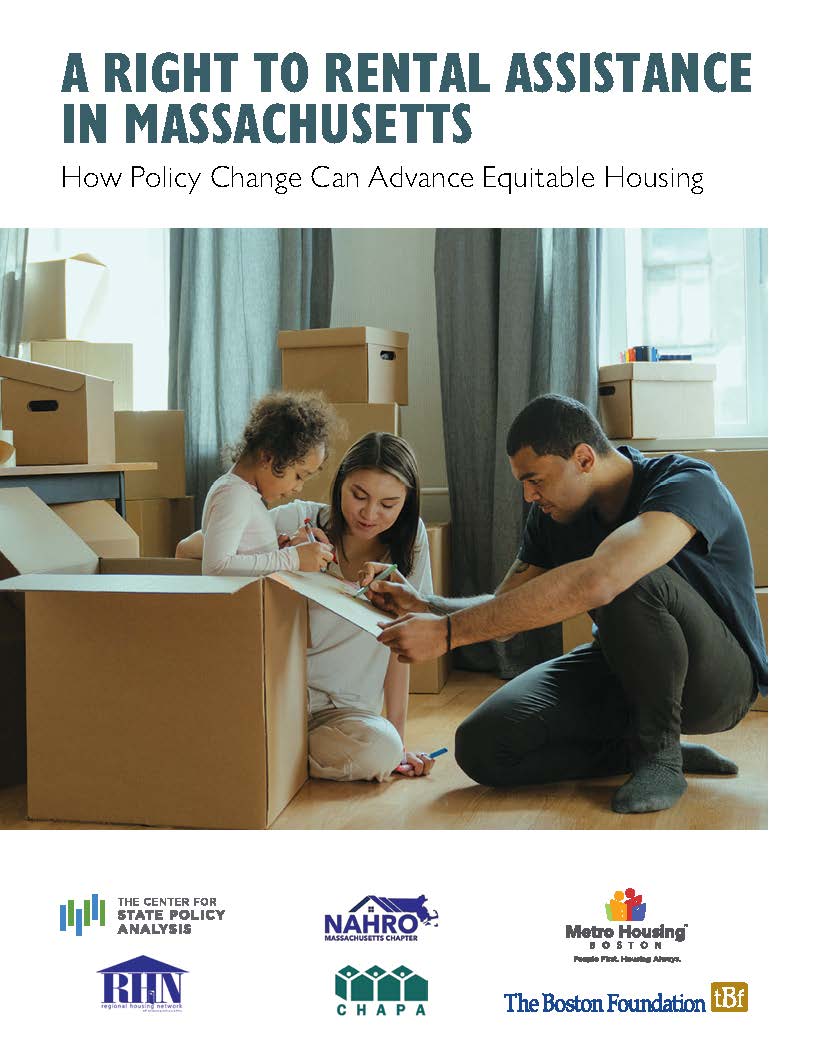A Right to Rental Assistance in Massachusetts
How Policy Change Can Advance Equitable Housing
December 14, 2022
This new report, entitled 'A Right to Rental Assistance in Massachusetts,' from a partnership of housing groups finds that Massachusetts could provide affordable housing for 240,000 families by investing in a statewide expansion of the state’s housing voucher program, estimating that making the MRVP available to all eligible households would cost $3.2 billion annually. The report answers critical questions about how the expansion of MRVP might work, how many could benefit, what it would cost, and how we could meet the implementation challenges.
While MRVP remains the largest state-funded voucher program in the country, it serves less than 10,000 households at its current budget — a small percentage of the 585,000 individuals and families estimated in the report to be eligible for state and federal housing assistance. The $3.2 billion expansion of the program would reach an estimated 240,000 eligible for MRVP not already being served by other state and federal programs, taking into account that some households would not have eligible housing or opt not to apply for the program at any given time.
Key Findings
The report found that expanding MRVP to all that were eligible would:
- Bring the benefits of MRVP to a broader population of seniors, families, and other individuals with very low incomes, reducing poverty and homelessness while also increasing housing stability and family mobility.
- Eliminate the distortions and deep unfairness that come with the current lottery and waitlist approach.
- Reduce property owner discrimination against voucher holders since landlords who turn away eligible families would find themselves cut off from a huge new market.
- Create new incentives to construct housing for voucher-holders with the assurance of a guaranteed government payment for all units.
- Further racial equity in housing, as nearly half of Black families and 56 percent of Latino families would be eligible versus less than one in five White families.
- Potentially save the state money in other areas, including homelessness assistance and emergency housing, which typically cost the state $300–$400 million per year.
The Boston Foundation, MetroHousing|Boston, Citizens’ Housing and Planning Association (CHAPA), Regional Housing Network of Massachusetts (RHN), and the Massachusetts Chapter of the National Association of Housing & Redevelopment Officials (MassNAHRO) funded and informed the report. The Center for State Policy Analysis at Tufts University provided technical support.

